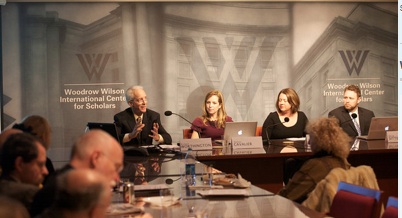On December 6, 2012, Darlene Cavalier (Science Cheerleader and Founder of SciStarter, an online citizen science community), joined colleagues from Expert and Citizen Assessment of Science and Technology (ECAST) to present outcomes from a recent pilot project demonstrating how “regular” people, including so-called citizen scientists, can improve science policy making through participatory technology assessment.
Participatory technology assessment emphasizes that the people who fund technology development (through taxes and consumer purchases), and who live with its positive and negative consequences, but are not otherwise formally engaged through advocacy, can and should play a role in technology assessment.
While some advocates for technology assessment called for the inclusion of participatory practices from the beginnings of the field’s evolution in the U.S., action to implement this idea did not begin until the late 1980s, largely in Europe. In society at large, however, participatory practices have expanded considerably over the past two decades in relation to science and technology in particular, and social decision-making in general.
During this event we (the ECAST team) explored one approach to participatory technology assessment, the World Wide Views exercise on Biodiversity, a global citizen consultation held in 25 countries on September 15, 2012 that provided input to the Eleventh Council of Parties of the UN Convention on Biological Diversity.
This model can, and should, be applied to harnessing the power of citizen scientists (people, many of whom without science degrees, who get involved in formal and informal research projects) to improve science policy making.
View Wilson Center_pTA_slides presented at this event.
Related article: Science Progress, “Creating a very public Office of Technology Assessment.”

